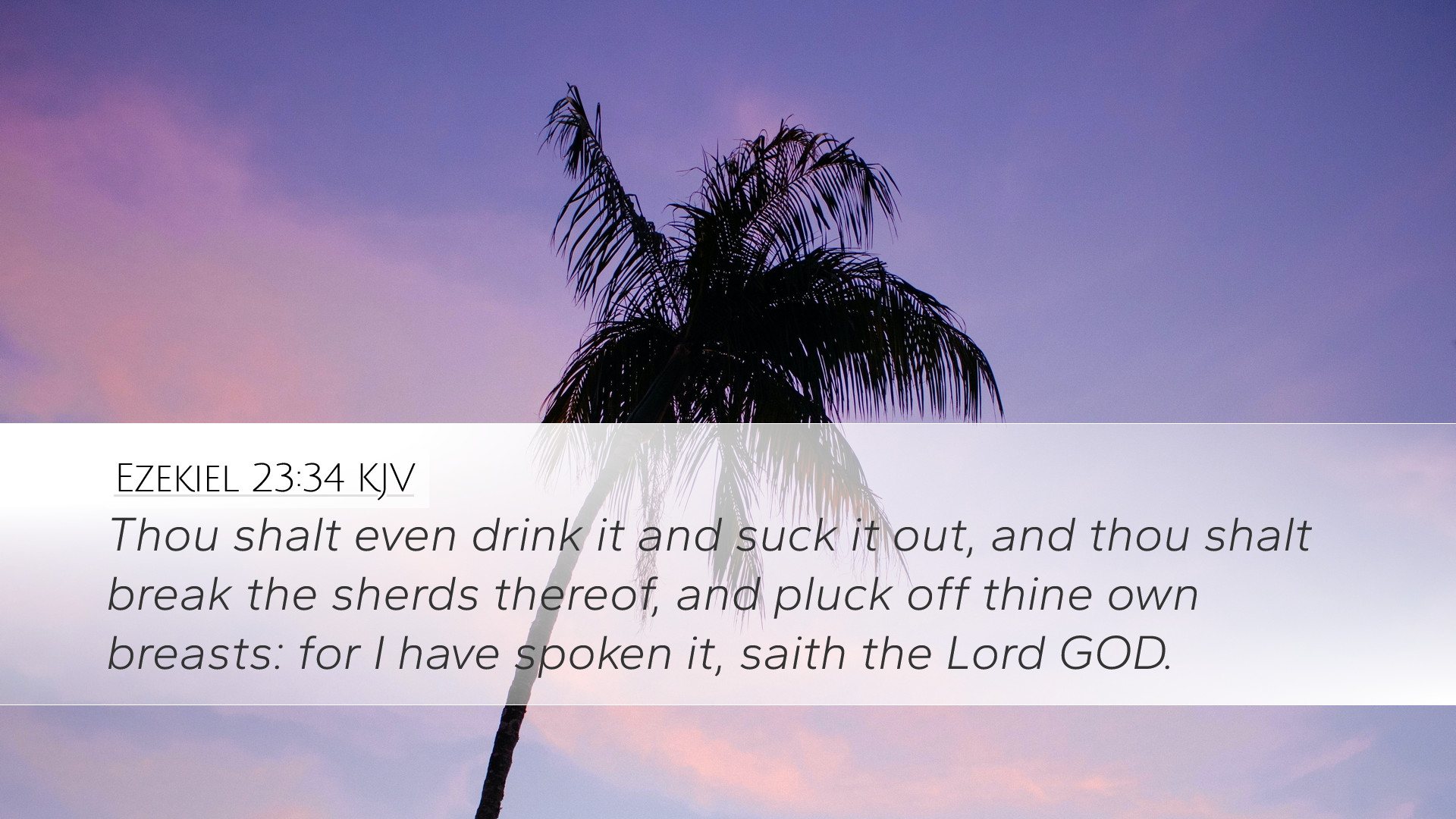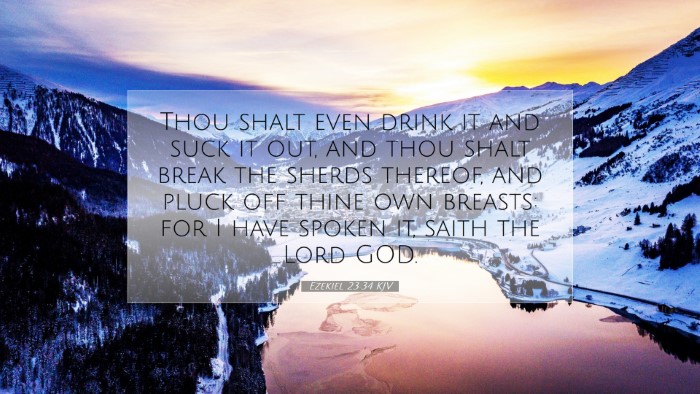Ezekiel 23:34 Commentary
Ezekiel 23:34 states: "And you shall drink of the cup of your sister; you shall drink deeply and gulp it down, and you shall be as drunk as the dead because of the violence of your transgression; for I have spoken, says the Lord GOD." This verse is part of a larger passage in which Ezekiel describes the two sisters, Oholah and Oholibah, symbolizing Samaria and Jerusalem. This commentary seeks to unpack the meaning and implications of this verse for both its immediate context and its broader theological significance.
Contextual Overview
The prophecies of Ezekiel revolve around the themes of judgment, repentance, and restoration. In chapters 23, the prophet uses vivid imagery to represent the spiritual infidelity of Israel and Judah. By likening these nations to two sisters who engage in sexual immorality, Ezekiel highlights their turning away from God and the ensuing consequences.
Commentators' Insights
Matthew Henry
Matthew Henry emphasizes the metaphorical significance of drinking from the cup. According to him, "The cup represents the divine judgment and wrath that the nations are destined to endure due to their sins." He believes that God's message through Ezekiel is one of stark warning, illustrating how profoundly serious their actions are. Henry further points out that the act of drinking deeply signifies fully experiencing the consequences of one's iniquities.
Albert Barnes
Albert Barnes explicates the imagery of "being as drunk as the dead," suggesting that it symbolizes complete devastation and loss of reason due to overwhelming calamity. He notes that this drunkenness is a result of their own choices leading them into destruction. Barnes articulates that this verse serves to illustrate the depths of the consequences when a nation abandons its commitment to the covenant with God.
Adam Clarke
Adam Clarke provides valuable insights into the cultural context, noting that the metaphor of drinking from a cup was common in ancient Near Eastern literature. He describes the severity of the punishment as being "not only to drink from the same cup but to experience the fullness of God's wrath." Clarke emphasizes that the act is both an indication of divine judgment and a call to spiritual awakening and repentance.
Theological Themes
- Divine Judgment: The passage strongly underlines the reality of God's forthcoming judgment upon the unfaithful. The use of the cup as a symbol illustrates that God will hold His people accountable.
- Call to Repentance: Embedded in the warning is an opportunity for repentance, urging the people to acknowledge their sins and return to God before the full measure of judgment is experienced.
- Consequences of Idolatry: This scripture serves as a reminder of the heavy consequences that accompany idolatry and turning away from God, challenging contemporary readers to reflect on their own spiritual allegiances.
Practical Applications
For pastors, students, theologians, and scholars, Ezekiel 23:34 is not merely an ancient text but a living reminder of the nature of God’s justice and the human propensity to stray from divine truth. Here are some key applications:
- Preaching and Teaching: Use this passage to illustrate the seriousness of sin and the importance of fidelity to God in both personal and communal settings.
- Personal Reflection: Encourage a personal examination of one's spiritual commitment and the potential 'idols' that may have crept into modern life.
- Community Accountability: Foster discussion within church communities about accountability in faith and the collective responsibility to uphold God's standards.
Conclusion
Ezekiel 23:34 offers profound insights into the nature of divine judgment, the consequences of spiritual infidelity, and the hope for repentance. By understanding this passage through the lens of respected commentators like Matthew Henry, Albert Barnes, and Adam Clarke, readers can appreciate its complexity and relevance to contemporary faith practices. Ultimately, this verse challenges believers to remain vigilant in their commitment to God and to recognize the urgency of living according to His will.


